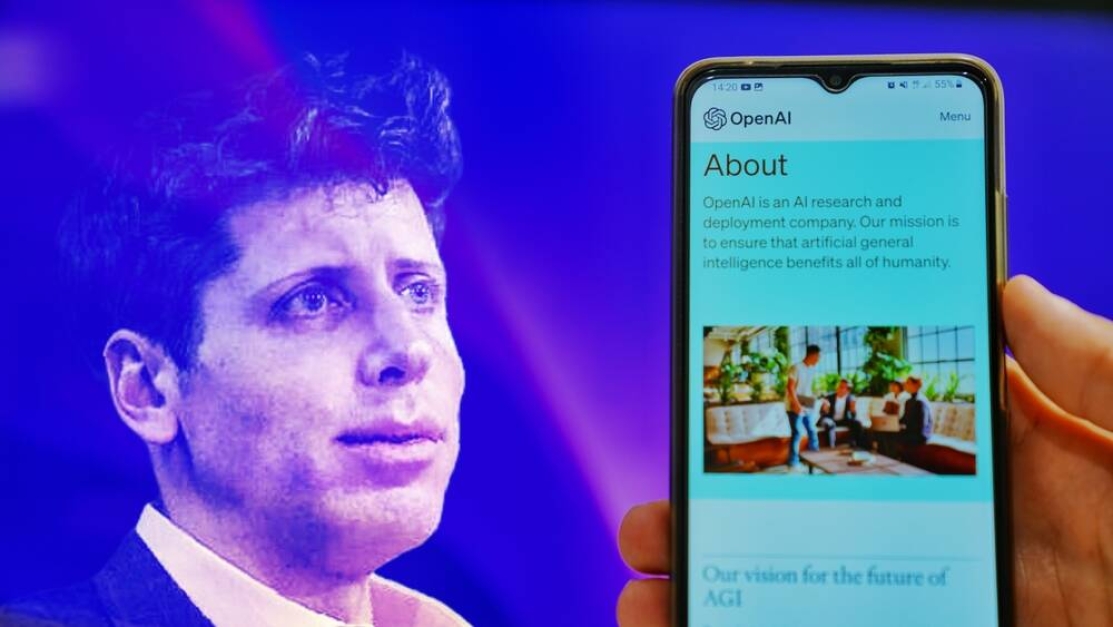On Thursday, the ChatGPT creator announced its plan to create a public benefit company (PBC) that would allow for large-scale investments. It argued that its current organizational structure was preventing this.
OpenAI plans to convert the for-profit wing of its company into a Delaware PBC that will control and run OpenAI’s business and operations, while its non profit arm will be in charge of hiring and directing charity initiatives for healthcare and education.
This shift reflects OpenAI’s ongoing transition from its non-profit origins. Since its founding in 2016, OpenAI’s status has been fluid as a non profit corporation. ChatGPT explained in a Friday blog post that “In those early days, we thought that progress relied on key ideas produced by top researchers and that supercomputing clusters were less important,” it was a non-profit corporation.
In 2019, it became apparent that OpenAI’s goal of advancing digital Intelligence would require massive amounts of computing power. “We would need far more compute, and therefore far more capital, than we could obtain with donations in order to pursue our mission.” In 2019, the AI model builder adopted a new structure, creating a for-profit company controlled by the non profit.
The goal of this approach was to maximize profits and provide capped returns for investors and employees. The remainder would be funneled to the non-profit. The change allowed for massive shareholder investments, including Microsoft’s $1 Billion investment in the same year.
Five years after this structure was implemented, the AI industry has exploded. OpenAI is now facing stiff competition with rival model builders such as Anthropic Meta and Google. The blog post explained. “We once again need to raise more capital than we’d imagined. Investors want to back us, but at this scale of capital, need conventional equity and less structural bespokeness.”
OpenAI’s corporate structures have become unsuitable in the current competitive landscape. As a result, the company is changing the deal.
OpenAI’s latest structural change, planned for 2025 will see the for-profit arm take over the AI giant’s operations and business. The blog post does not specify to what extent the non-profit part of the outfit will retain any meaningful control. However, the blog post indicates that it will retain “significant interest in the existing for-profit,” in the form of shares of the PBC with a valuation of “determined by independent financial advisors.”
Microsoft intends to supplement its 365 Copilot product line with non-OpenAI
Microsoft wants to diversify AI models that power the 365 Copilot product line to include those that are not built by OpenAI.
Until now, Microsoft’s AI products were powered by OpenAI, a generative AI partner. Reuters reported last week that Redmond, citing people familiar with the issue, was looking to reduce their dependence on GenAI in an effort to cut costs. A Microsoft spokesperson confirmed
“OpenAI continues to be our partner on frontier models,” . Microsoft has built its own models before “Our agreement allows us to go beyond fine-tuning and customize OpenAI’s models and IP precisely for our own needs so we can integrate them directly into our products. As we have said before, we incorporate various models from OpenAI and Microsoft depending on the product and experience. For example, recommending specific edits to a paragraph in Word may be best suited for one model whereas formatting updates could be powered just as well—and perhaps more quickly—with a different model.”
. The Phi-series models have now reached their fourth version, with the latest being a 14 billion-parameter model called Phi-4 that was launched earlier this month.
Many models use highly permissive MIT licensing, making them perfect for fine tuning. Microsoft may be preparing to offer model customization to 365 Copilot users. The Register contacted Microsoft for a comment. We’ll let you all know if there is any response.
- Microsoft has added another problem to Windows 11 24H2’s naughty lists
- Do you offer better value than AI?
- AI is a rising tide that lifts all chips, as AMD Instinct and cloudy silicon compete for a piece of Nvidia’s pie.
- Fining Big Tech doesn’t work. Make them public domain illegally trained LLMs
This new corporate structure comes only months after OpenAI raised new funding of $6.6 billion, which boosted its valuation to $157.6 billion. The funding will be used to develop more advanced models including OpenAI’s O-series models which, according to OpenAI, demonstrate “new reasoning capabilities.”
Elon Musk has been a constant critic of OpenAI, who funded the model builder prior to founding rival AI company xAI. Musk has filed legal challenges against OpenAI’s business model and earlier this year, he filed an injunction to stop the AI company from becoming a for-profit enterprise.
Boot note
Speaking about xAI, Musk-backed startup raised a $6 billion series-C funding this week. The money will be used to expand its Colossus Supercomputer.
Currently, the startup plans to expand its machine to 200,000 accelerators. The machine will be used to develop future Grok models, as well as Aurora image-gen models. (r)
